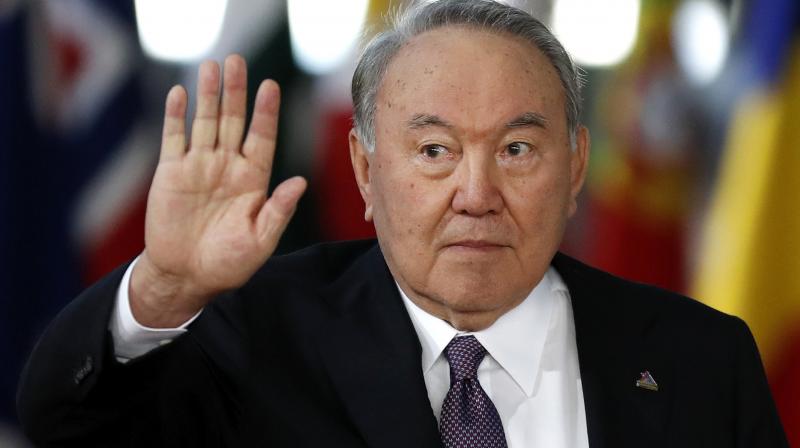New Kazakh president sworn in after longtime leader resigns
The 78-year-old former leader Nazarbayev attended Kassym-Jomart Tokayev\'s inauguration on Wednesday.

Moscow: The speaker of Kazakhstan's parliament was sworn in as interim president on Wednesday, a day after longtime leader Nursultan Nazarbayev abruptly resigned.
Nazarbayev surprised many by announcing in a televised address Tuesday that he would step down after nearly 30 years in office that has included the whole of Kazakhstan's time as an independent nation.
The 78-year-old Nazarbayev attended Kassym-Jomart Tokayev's inauguration Wednesday, entering to lengthy applause from assembled dignitaries before taking a seat on a podium behind the lectern where Tokayev gave an address. Minutes after Tokayev was sworn in, he suggested that the Kazakh capital Astana be renamed Nursultan to honour the outgoing president.
Tokayev in his speech praised Nazarbayev as "an outstanding reformer" who is widely expected to continue to wield influence as chairman of the security council and head of the ruling party.
"Nazarbayev is not stepping down; he is stepping up," Dmitri Trenin, director of the Carnegie Center in Moscow, tweeted. "He will oversee power transit over the next few years."
Trenin said that Russian President Vladimir Putin, whose fourth term in office ends in 2024, is also likely to use the option of "president mentor" later on. Rumours about Nazarbayev's resignation and a possible plan for succession have been swirling for years.
Some speculated that the president might be grooming his daughter, who has served as deputy prime minister and is a lawmaker now, for succession. Nazarbayev himself, however, has not indicated that he has a successor in mind. Nazarbayev took the helm in Kazakhstan as its Communist Party chief of the republic in 1989 when it was part of the Soviet Union, and he was first elected its president weeks before the 1991 Soviet collapse gave the country its independence.
He has been widely praised for maintaining stability and ethnic peace in Kazakhstan, a large, oil-rich nation south of Russia and west of China. Even though he has faced criticism for marginalising the political opposition and creating what is effectively a one-party state, the political regime that Nazarbayev has built is more liberal than those in the de-facto dictatorships in the neighbouring Central Asian countries.

